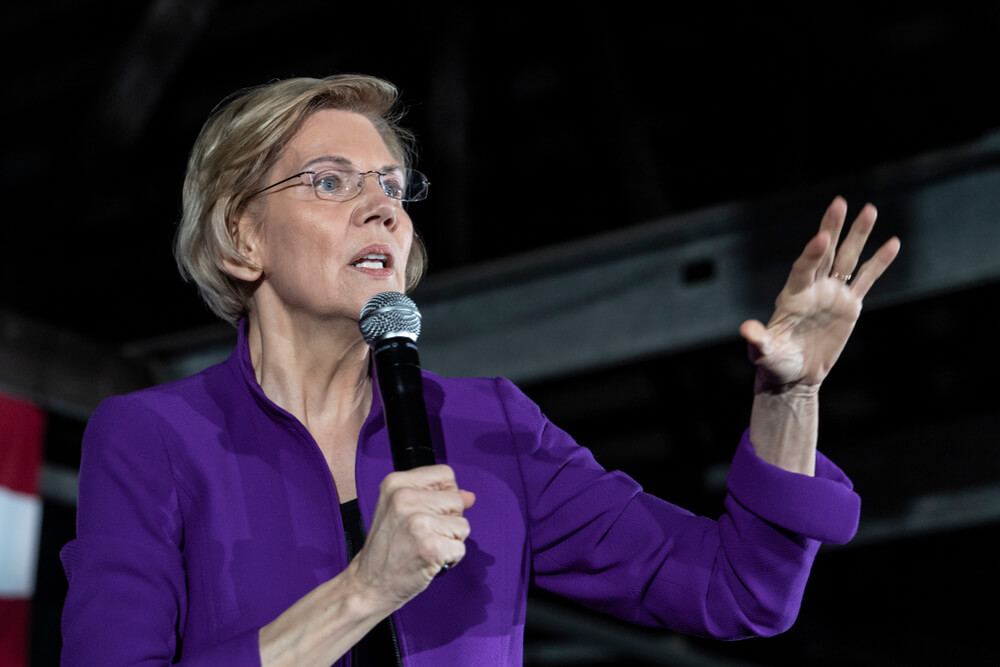Sen. Elizabeth Warren has been the most active 2020 Democratic hopeful when it comes to policy ideas, ideas she says will be paid for by her ultra-millionaire “wealth tax” that economists say would simply be evaded by most rich people expected to pay it.
According to a Washington Post report Wednesday, Warren, a Massachusetts Democrat, often replies “I have a plan for that” when asked questions at one of her many town hall events.
And Warren does have a lot of plans, such as free public college, universal child care, student debt cancellation and more — all of course paid for by a new tax on the wealthy.
Warren’s campaign says her version of a wealth tax, along with a $1 trillion corporate tax on the most profitable U.S. companies, would raise about $2.75 trillion over 10 years, enough to cover her many proposals with hundreds of billions of dollars to spare.
“I’m tired of freeloading billionaires,” Warren proclaims to cheering crowds across the country.
And while Warren may always “have a plan for that,” economists are questioning the math behind her proposals because rich people always have a plan, too — a plan to avoid those taxes and keep their money.
“She’s gone big. There’s nothing small about these proposals,” Moody’s Analytics chief economist Mark Zandi told The Washington Post. “Will the wealthy do things that wealthy people can do to avoid paying the tax? That’s the real concern that I have… A lot of other countries have tried this and backtracked because of tax avoidance issues.”
The centerpiece of Warren’s wealth tax is a 2% annual tax on household assets above $50 million each year, targeting the wealthiest 0.1% of Americans — “the diamonds, the yachts and the Rembrandts” of multimillionaires, Warren says.
Former economic adviser to President Barack Obama, Lawrence Summers, along with and University of Pennsylvania professor Natasha Sarin, wrote in an op-ed to The Washington Post that “such a wealth tax will not yield the revenue that its proponents hope for.”
The pair cited numbers from the current estate tax that shows just how adept the rich are at avoiding the 40% tax on their assets after death.
“The problem with their estimate is that they fail to engage with the fact that wealthy people do a lot of things that make it very hard to tax their estates, and will make it equally hard to tax their wealth,” said Sarin, who also teaches finance at the Wharton School of Business.
According to WaPo, a recent poll of 40 economists by the University of Chicago Booth School of Business showed 73% believe a wealth tax “would be much more difficult to enforce than existing federal laws” due to tax evasion. Only 7% disagreed, while a few cited what has happened in Europe, where most countries tried and then abandoned a wealth tax, which have brought in far less money than projected.
A February poll by Politico-Morning Consult showed 61% of voters support a wealth tax, including 50% of Republicans.
Editor’s note: Do you support any of the number of “wealth taxes” proposed by 2020 Democratic hopefuls? Or, like the economists says, do you think they are overestimating how much these taxes will bring in due to tax avoidance and rich people finding ways around the law (which also would face court challenges for being unconstitutional)? Share your thoughts below.




